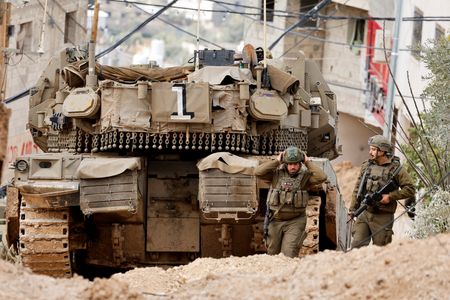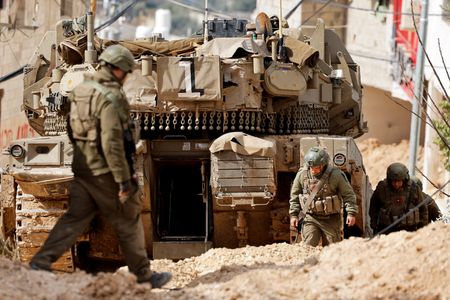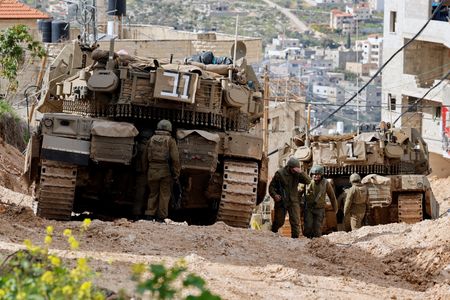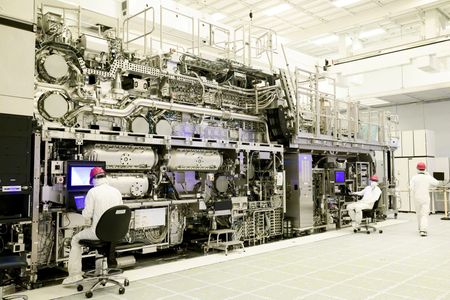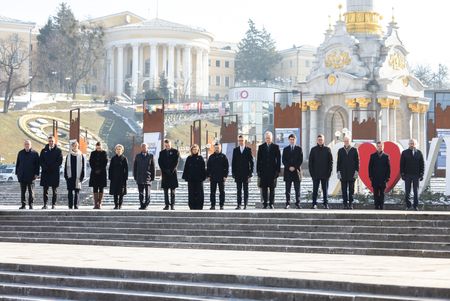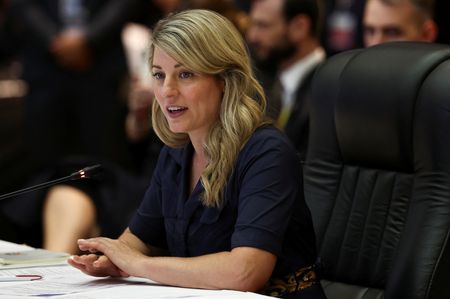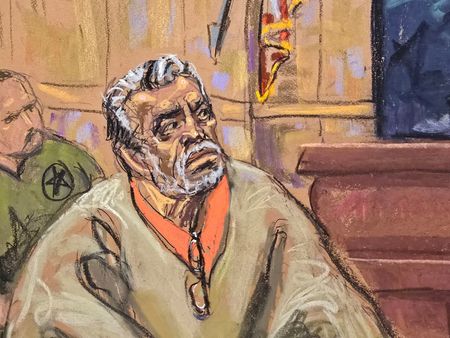By Ali Sawafta
JENIN, West Bank (Reuters) – Israeli bulldozers have demolished large areas of the now virtually empty Jenin refugee camp and appear to be carving wide roadways through its once-crowded warren of alleyways, echoing tactics already employed in Gaza as troops prepare for a long-term stay.
At least 40,000 Palestinians have left their homes in Jenin and the nearby city of Tulkarm in the northern West Bank since Israel began its operation just a day after reaching a ceasefire agreement in Gaza after 15 months of war.
“Jenin is a repeat of what happened in Jabalia,” said Basheer Matahen, spokesperson for the Jenin municipality, referring to the refugee camp in northern Gaza that was cleared out by the Israeli army after weeks of bitter fighting. “The camp has become uninhabitable.”
He said at least 12 bulldozers were at work demolishing houses and infrastructure in the camp, once a crowded township that housed descendants of Palestinians who fled their homes or were driven out in the 1948 war in what Palestinians call the ‘Nakba’ or catastrophe at the start of the state of Israel.
He said army engineering teams could be seen making preparations for a long-term stay, bringing water tanks and generators to a special area of almost one acre in size.
No comment was immediately available from the Israeli military but on Sunday, Defence Minister Israel Katz ordered troops to prepare for “a prolonged stay”, saying the camps had been cleared “for the coming year” and residents would not be allowed to return.
The month-long operation in the northern West Bank has been one of the biggest seen since the Second Intifada uprising by Palestinians more than 20 years ago, involving several brigades of Israeli troops backed by drones, helicopters, and, for the first time in decades, heavy battle tanks.
“There is a broad and ongoing evacuation of population, mainly in the two refugee camps, Nur Shams, near to Tulkarm and Jenin,” said Michael Milshtein, a former military intelligence official who heads the Palestinian Studies Forum at the Moshe Dayan Center for Middle Eastern and African Studies.
“I don’t know what the broad strategy is but there’s no doubt at all that we didn’t see such a step in the past.”
Israel launched the operation, saying it intended to take on Iranian-backed militant groups including Hamas and Islamic Jihad that have been firmly implanted in the refugee camps for decades, despite repeated Israeli attempts to root them out.
But as the weeks have gone on, Palestinians have said the real intention appears to be a large scale, permanent displacement of the population by destroying homes and making it impossible for them to stay.
“Israel wants to erase the camps and the memory of the camps, morally and financially, they want to erase the name of refugees from the memory of the people,” said 85-year-old Hassan al-Katib, who lived in the Jenin camp with 20 children and grandchildren before abandoning his house and all his possessions during the Israeli operation.
Already, Israel has campaigned to undermine UNWRA, the main Palestinian relief agency, banning it from its former headquarters in East Jerusalem and ordering it to stop operations in Jenin.
“We don’t know what is the intention of the state of Israel. We know there’s a lot of displacement out of the camps,” said UNRWA spokesperson Juliette Touma, adding that refugees enjoyed protected status regardless of their physical location.
‘MILITARY OPERATION’
The camps, permanent symbols of the unresolved status of 5.9 Palestinian refugees, have been a constant target for Israel which says the refugee issue has hindered any resolution of the decades-long conflict.
But it has always held back from clearing them permanently. On Monday, Israeli Foreign Minister Gideon Saar denied that the operation in the West Bank had any wider purpose than combating militant groups.
“It’s military operations taking place there against terrorists, and no other objectives but that,” he told reporters in Brussels where he met European Union officials in the EU-Israel Association Council.
But many Palestinians see an echo of U.S. President Donald Trump’s call for Palestinians to be moved out of Gaza to make way for a U.S. property development project, a call that was endorsed by Prime Minister Benjamin Netanyahu’s cabinet.
Nabil Abu Rudeineh, spokesperson for Palestinian President Mahmoud Abbas, said the operation in the northern West Bank appeared to be repeating tactics used in the Gaza, where Israeli troops systematically displaced thousands of Palestinians as they moved through the enclave.
“We demand that the U.S. administration force the occupation state to immediately stop the aggression it is waging on the cities of the West Bank,” he said.
Israeli hardliners inside and outside the government have called repeatedly for Israel to annex the West Bank, a kidney-shaped area around 100 kilometres long that Palestinians see as the core of a future independent state, along with Gaza.
But pressure has been tempered by fears that outright annexation could sink prospects of building economic and security ties with Arab states, including Saudi Arabia, and face a veto by Israel’s main ally, the United States.
However, hardliners have been heartened by the large number of strongly pro-Israel figures in the new U.S. administration and by Trump himself, who said earlier this month that he would announce his position on the West Bank within weeks.
(Additional reporting by James Mackenzie in Jerusalem, Lili Bayer in Brussels; writing by James Mackenzie; editing by Christina Fincher)


